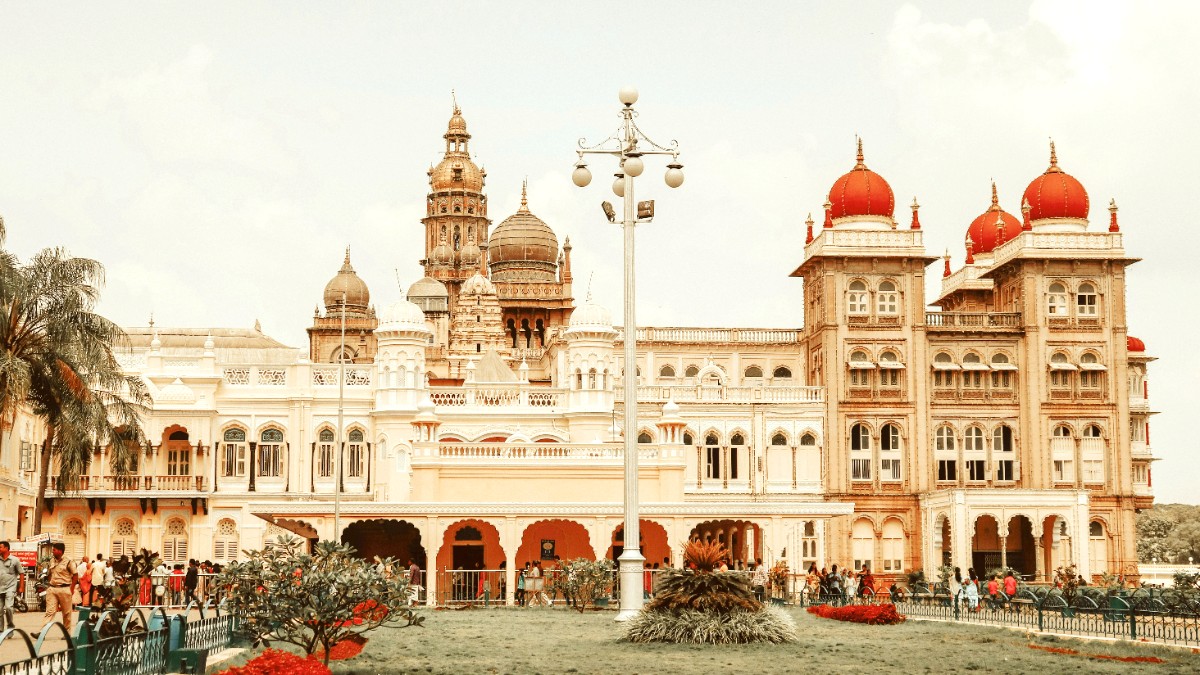
Karnataka, India
Mysore is geographically close to significant protected areas like Bandipur National Park and Nagarhole National Park. These are for wildlife conservation, especially for endangered species like tigers and elephants.
Waste management infrastructure in India, including Mysore, is improving but still faces challenges. Plastic waste is a major issue, often seen littering landscapes.
Water scarcity can be a concern in some parts of India, especially during dry seasons. Be mindful of your water usage in hotels. Take shorter showers and report any leaking faucets.
Your choices can make a difference in preserving Mysore's natural beauty.
Support licensed safari operators within protected areas. Follow all park rules, including staying on designated paths and not disturbing wildlife. Learn about local conservation efforts.
Consider choosing direct flights where possible to reduce emissions. Support airlines with carbon offset programs if available.
Some tour operators focus on responsible tourism, prioritizing local communities and environmental protection.
Your purchases can support local economies and sustainable production.
Support local museums, heritage sites, and cultural performances. Your entry fees and patronage contribute directly to the preservation of Mysore's rich heritage and traditional arts.
Dress modestly, especially when visiting religious sites or traditional areas. Always ask for permission before taking photos of individuals. Show deference to older individuals. Bargain fairly and with a smile in local markets.
Support the local economy and ensure your visit benefits the communities you interact with.
Seek out homestays or small local businesses that directly benefit local families and communities. These initiatives often offer a more authentic experience while distributing tourist revenue broadly.
Purchase handicrafts and souvenirs from government emporiums (like Cauvery Handicrafts Emporium) or certified fair-trade shops. This ensures that artisans receive fair wages for their work.
Be wary of touts or individuals who pressure you into unsolicited purchases or tours, especially around tourist sites. Politely decline if you feel uncomfortable.
If you wish to contribute, research and donate to established local charities or non-governmental organizations (NGOs) that focus on education, healthcare, social welfare, or environmental protection.
Your choices in where you spend your money directly benefit the local economy.
Eat at local restaurants rather than international chains to keep money within the community.
Shop at local markets for souvenirs and daily needs, supporting small vendors directly.
Hire local guides for tours. Their insights are authentic, and your payment directly supports their livelihood.
Your financial choices can directly influence local livelihoods and sustainable development. Choose consciously to support ethical practices and local businesses.
Simple actions contribute to a positive impact during your visit.
Engage with locals respectfully. A smile and simple gestures are universally understood. Learn some basic phrases to show your effort.
Your daily habits as a traveler impact the environment. Adopt practices that limit your ecological footprint.
Respect people's privacy and cultural norms when taking photographs.
Your spending decisions can directly benefit the local population.
Choose local eateries and street food stalls over international chains.
Purchase souvenirs and goods from local markets and independent shops.
Engage local guides and transport for a more authentic experience and direct support.
Avoid any activities that exploit animals, children, or local populations. Be mindful of cultural norms to avoid unintended offense.
Your actions contribute to the preservation of Mysore's environment and culture. Travel responsibly to ensure a positive legacy.